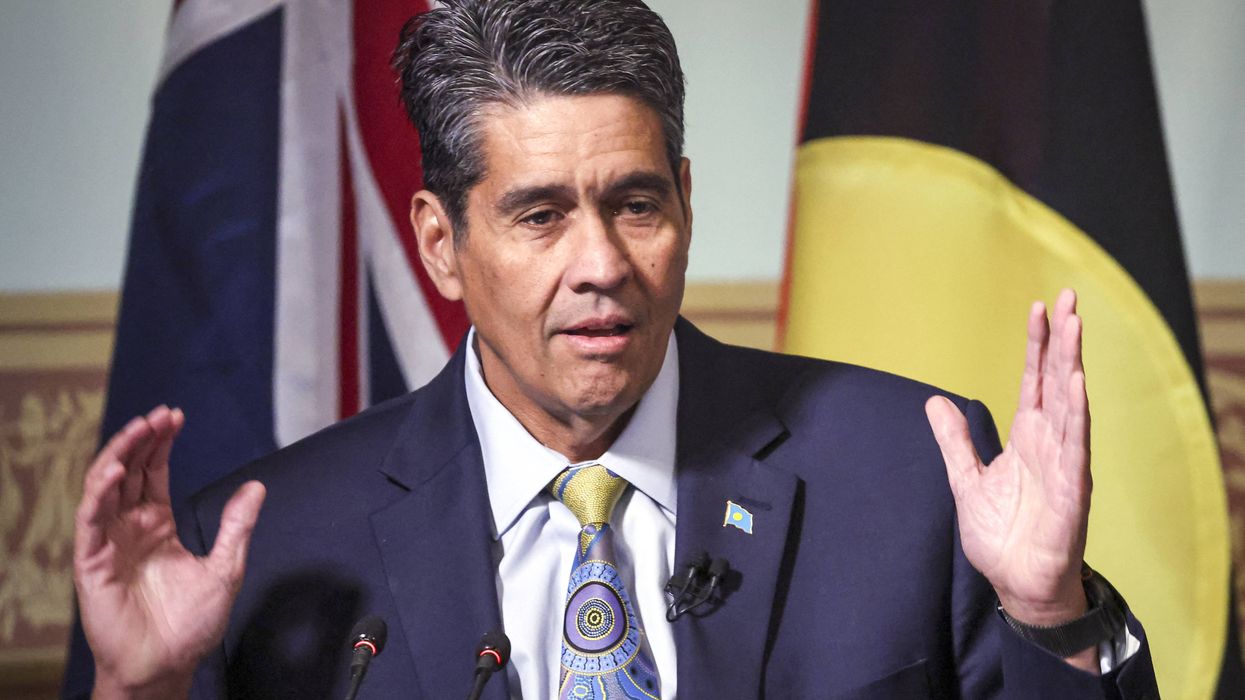July, 23 2020, 12:00am EDT

For Immediate Release
Contact:
Taylor Billings, Corporate Accountability, tbillings@corporateaccountability.org
Johanna Bozuwa, The Democracy Collaborative, jbozuwa@democracycollaborative.org
Chandra Farley, Partnership for Southern Equity, cfarley@psequity.org
Seth Gladstone, Food & Water Watch, sgladstone@fwwatch.org
Dana Floberg, Free Press Action, dfloberg@freepress.net
Greer Ryan, Center for Biological Diversity, gryan@biologicaldiversity.org
New Data Underscores Urgent Need for Federal Moratorium on Utility Shutoffs
Expiring state bans leave millions at risk of losing vital services as COVID-19, unemployment rates climb.
WASHINGTON
Senator Tom Carper, Democratic ranking member of the Environment and Public Works Committee, released a report today that revealed only 10 U.S. states and Washington, D.C., have statewide moratoriums on water, power and gas utility shut-offs that protect all or the vast majority of residential ratepayers in effect right now. The report provides a comprehensive state-by-state analysis of state protections against water, power and gas utility disconnections.
The Center for Biological Diversity also released a report showing that expiring state-level electricity shut-off moratoria could leave as few as five states with binding protections by September. This patchwork of protections leaves an increasing number of people at risk of losing access to vital utilities.
More than 830 organizations, 113 members of Congress and hundreds of thousands of people have called for a nationwide moratorium on utility shutoffs for water, electricity and broadband services. The HEROES Act, passed by the House of Representatives in May, includes a nationwide moratorium on shutoffs. The Senate is set to debate the new COVID-19 response bill in the next three weeks, and advocates are calling for it to include these same provisions.
The coronavirus crisis has triggered unemployment levels unprecedented in modern American history, disproportionately hurting low-wealth households as well as Black, Latinx and other communities of color. These communities are facing increasingly unaffordable rates for water, electricity and broadband services.
In addition to impending expirations on state-wide moratoria, people are also contending with internet service providers that are reportedly shutting off service even after taking a voluntary FCC pledge not to. An investigation revealed that nearly 500 complaints have been filed with the FCC over internet shutoffs in apparent violation of the pledge. And now that the FCC has sunset its pledge, many providers are walking back these already-shaky promises.
According to Food & Water Action's live tracker, 10 statewide moratoriums on water shutoffs and nearly 100 local moratoriums have already expired, leaving millions of people vulnerable to losing basic water services.
"It is morally unacceptable to cut off people's essential services like water, energy and broadband amidst the ongoing pandemic -- particularly as climate-induced heat waves hit across the country. People's lives are more important than meeting profit margins. We need a comprehensive national moratorium passed in Congress," said Johanna Bozuwa of the Democracy Collaborative.
"If the Senate doesn't act, millions of families face the risk of losing power and water during an unprecedented public health and economic crisis," said Greer Ryan, energy policy analyst at the Center for Biological Diversity's energy justice program. "A national moratorium on utility shutoffs has to be a nonnegotiable part of the new coronavirus rescue package. Lawmakers must help unemployed people keep their lights on and their water flowing. And we need to invest in long-term solutions like community solar to create new jobs and build climate and economic resilience."
"As coronavirus cases are once again on the rise and many states are reinstating strict social distancing measures, the need for universal broadband is plainer than ever," said Dana Floberg, policy manager at Free Press Action. "But too many people, particularly low-income families and communities of color, are kept offline by high broadband prices that are even less affordable during this pandemic and economic disruption. New research and painful stories show that too many people are at risk of losing vital internet connectivity due to broadband shutoffs. We need a national moratorium to ensure that no one is forced into digital darkness."
"These updated numbers underscore what people across the U.S. have known for months: We need a national moratorium on utility shut-offs," said Alissa Weinman, associate campaign director at Corporate Accountability. "COVID-19 has exacerbated inequities in water access at a time when that access is more important than ever. Shamefully, the U.S. government has not only failed to recognize the human right to water internationally, but has also failed to adequately invest in U.S. water infrastructure for decades. Right now, Congress can bring us closer to realizing water justice by stopping utility shutoffs, investing in public water infrastructure, and prioritizing people, not corporations."
"Water shutoffs are resuming across the country, particularly in areas being hit hardest by the pandemic," said Mary Grant, the Public Water for All campaign director at Food & Water Action. "Hundreds of people are losing basic water service every single day in cities including Jacksonville and Orlando, Florida. With COVID-19 cases spiking, we must ensure that every person has access to the services that they need to protect themselves, their families and their communities. This is an emergency that demands nothing short of federal action."
At the Center for Biological Diversity, we believe that the welfare of human beings is deeply linked to nature — to the existence in our world of a vast diversity of wild animals and plants. Because diversity has intrinsic value, and because its loss impoverishes society, we work to secure a future for all species, great and small, hovering on the brink of extinction. We do so through science, law and creative media, with a focus on protecting the lands, waters and climate that species need to survive.
(520) 623-5252LATEST NEWS
'Unhinged' Trump Wishes 'Merry Christmas to All, Including the Radical Left Scum'
"Nothing more Christian than to be a hateful wretched fuck on Jesus’ birthday," quipped one critic.
Dec 25, 2025
In a message called typically on-brand by observers, US President Donald Trump wished "Merry Christmas to all"—including his political opponents, whom he described in decidedly unchristlike language.
"Merry Christmas to all, including the Radical Left Scum that is doing everything possible to destroy our Country, but are failing badly," Trump said Christmas Eve on his Truth Social network.
"We no longer have Open Borders, Men in Women’s Sports, Transgender for Everyone, or Weak Law Enforcement," the president added. "What we do have is a Record Stock Market and 401K’s, Lowest Crime numbers in decades, No Inflation, and yesterday, a 4.3 GDP, two points better than expected. Tariffs have given us Trillions of Dollars in Growth and Prosperity, and the strongest National Security we have ever had. We are respected again, perhaps like never before. God Bless America!!!"
While nothing new—Trump has used past Christmas messages to tell people he doesn't like to "go to hell" and "rot in hell"—observers, including some MAGA supporters, were still left shaking their heads.
"Radical Left Scum" 😂🤣😂🤣😂🤣Christmas greetings from a liar, traitor, pedophile, and overall shitstain upon society.
[image or embed]
— Bill Madden (@maddenifico.bsky.social) December 24, 2025 at 9:00 PM
"Nothing more Christian than to be a hateful wretched fuck on Jesus’ birthday!" liberal political commentator Dean Withers said on X.
Another popular X account posted: "A sitting president of the United States using Christmas Day to spew venom at fellow Americans he calls 'Radical Left Scum' isn’t just unpresidential—it’s unhinged, un-Christian, and utterly beneath the office."
"This is the behavior of a bitter, small man who can’t even pretend to unify for one holy day," she added. "Shameful. Disgraceful. Pathetic."
Keep ReadingShow Less
Palau Signs Controversial $7.5 Million Deal to Take 75 Trump Deportees
"What if we spent the $100,000 per person in America setting them up with housing assistance, healthcare, education, etc?" asked one critic.
Dec 25, 2025
Palau said Wednesday that it has agreed to take in up to 75 people deported from the United States during President Donald Trump's purge of unauthorized immigrants in exchange for millions of dollars in financial assistance—a move that has sparked considerable opposition among the Pacific archipelago nation's roughly 18,000 inhabitants.
The office of Palauan President Surangel Whipps Jr. announced a memorandum of understanding with the United States under which the country will receive $7.5 million in assistance in exchange for taking in 75 third-country deportees who cannot be repatriated to their countries of origin.
Earlier this week, US State Department Principal Deputy Spokesperson Tommy Pigott said the people who will be sent to Palau have “no known criminal histories," as is the case with the vast majority of unauthorized immigrants in the United States, who have committed no crime other than the mere misdemeanor of entering the country illegally.
However, Palauans have voiced concerns over US Secretary of State Marco Rubio's remarks during a Cabinet meeting earlier this year in which he said that, “We want to send some of the most despicable human beings—perverts, pedophiles, and child rapists—to your countries as a favor to us."
Whipps said Wednesday that the relocation plan involves “people seeking safety and stability."
“These are not criminals,” the president said during earlier debate on the proposal. “Their only offense was entering the United States illegally and working without proper permits.”
However, Palau's Congress and its influential Council of Chiefs have twice rejected the transfers.
Piggot's statement "highlighted US commitments to partner with Palau on strengthening the country’s healthcare infrastructure, increasing Palau’s capacity to combat transnational crime and drug trafficking, and bolstering Palau’s civil service pension system."
Palau, which was administered by the US from 1947-94 and is now associated with the United States under the 1994 Compact of Free Association, which guaranteed the country nearly $900 million economic aid over 20 years in exchange for exclusive US military access.
The country's foreign policy often tracks closely to that of the US. For example, Palau is sometimes among the handful of usually similarly small nations that vote along with the United States and Israel against United Nations resolutions condemning Israeli crimes or affirming Palestinian rights.
Other developing nations including Eswatini, Rwanda, South Sudan, and Uganda have also agreed to take in US deportees or are considering doing so.
Reactions to the US-Palau agreement drew criticism on social media, where one X user called the deal a "bribe" and another popular Bluesky account asked, "What if we spent the $100,000 per person in America setting them up with housing assistance, healthcare, education, etc?"
Keep ReadingShow Less
Trump 'Choosing From the War Crimes Menu' With 'Quarantine' on Venezuela Oil Exports
"Economic strangulation is warfare and civilians always pay the price," lamented CodePink.
Dec 25, 2025
President Donald Trump has ordered US military forces to further escalate their aggression against Venezuela by enforcing a "quarantine" on the South American nation's oil—by far its main export—in what one peace group called an attempted act of "economic strangulation."
"While military options still exist, the focus is to first use economic pressure by enforcing sanctions to reach the outcome the White House is looking [for]," a US official, who spoke on condition of anonymity, told Reuters.
The move follows the deployment of an armada of US warships and thousands of troops to the region, threats to invade Venezuela, oil tanker seizures off the Venezuelan coast, Trump's authorization of covert CIA action against the socialist government of Venezuelan President Nicolás Maduro, and airstrikes against boats allegedly running drugs in the Caribbean Sea and Pacific Ocean that have killed more than 100 people in what critics say are murders and likely war crimes.
This, atop existing economic sanctions that experts say have killed tens of thousands of Venezuelans since they were first imposed during the first Trump administration in 2017.
"The efforts so far have put tremendous pressure on Maduro, and the belief is that by late January, Venezuela will be facing an economic calamity unless it agrees to make significant concessions to the US," the official told Reuters.
The official's use of the word "quarantine" evoked the 1962 Cuban Missile Crisis, an existential standoff that occurred after the John F. Kennedy administration imposed a naval blockade around Cuba to prevent Soviet nuclear missiles from being deployed on the island, even as the US was surrounding the Soviet Union with nuclear weapons.
"This is an illegal blockade," the women-led peace group CodePink said in response to the Reuters report. "Calling it a 'quarantine' doesn’t change the reality. The US regime is using hunger as a weapon of war to force regime change in Venezuela. Economic strangulation is warfare and civilians always pay the price. The US is a regime of terror."
Critics have also compared Trump's aggression to the George W. Bush administration's buildup to the invasion and occupation of Iraq, initially referred to as Operation Iraqi Liberation (OIL). But unlike Bush, Trump—who derided Bush for not seizing Iraq's petroleum resources as spoils of war—has openly acknowledged his desire to take Venezuela's oil.
"Maybe we will sell it, maybe we will keep it,” he Trump said on Monday. “Maybe we’ll use it in the strategic reserves. We’re keeping the ships also.”
On Wednesday, a panel of United Nations experts said that the US blockade and boat strikes constitute "illegal armed aggression" against Venezuela.
Multiple efforts by US lawmakers—mostly Democrats, but also a handful of anti-war Republicans—to pass a war powers resolution blocking the Trump administration from bombing boats or attacking Venezuela have failed.
The blockade and vessel seizures have paralyzed Venezuela's oil exports. Ports are clogged with full tankers whose operators are fearful of entering international waters. Venezuela-bound tankers have also turned back for fear of seizure. Although Venezuelan military vessels are accompanying tankers, the escorts stop once the ships reach international waters.
According to the New York Times, Venezuela is considering putting armed troops aboard tankers bound for China, which, along with Russia, has pledged its support—but little more—for Caracas.
Keep ReadingShow Less
Most Popular


